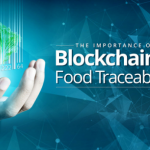
Going meatless as an alternate source of protein is the new generation process. Since the meat packaging giant Cargill was selling off the last cattle in April, he was discussing the meatless procedures for consuming protein. He was keen on investing in alternatives such as insects and plant-rooted protein. Soon after this thought he along with Richard Branson and Bill Gates collaborated a 17 million dollar investment for a startup called Memphis Meats. The company grows chicken and beef from the cells of the farm insects. This was one of the largest deal of the year 2017 for meatless meat.
Startup for the meatless protein ventures
The largest producer of meat in the United States of America is the Tyson Foods. It was also a part of the 55 million dollar investment for a company called Beyond Meat. A year later Tyson Foods began to sell meat for burgers in the departmental and grocery stores.
These two are one of the big examples of the latest and dynamic direction of a meatless meat world.
Companies like Nestle acquired Sweet earth Foods that basically sells harmless ham and benevolent bacon. A Canadian company naming Maple Leaf Foods is popular for marketing Kam and Kilk. It is a Canadian style spam. It comprises of Pork, poultry, deli meat and other types of meat. Another company called Light life is making products like ‘chicken’ and surprisingly plant-based hot dogs!
This is in a process of getting hold of ‘Field Roast’ which produces plant-based meat along with dairy-free cheese. Furthermore, major meat producers are having discussions for licensing Hampton Creek’s technology. This is required for the production of ‘clean meat’. For this particular technology, Unilever is investing in research in the universities for recreating textures of steak. On the other hand, Walmart is asking the supply producers for products which are meat-free in large quantities.

Meatless Journey
The entire process is signalling that the meat industry is welcoming a giant move in the meat market. This statistics is provided by a non- profit organization called Good Food Institute. This company supports the plant-based, clean meat industry and the research work that is going on for this venture.
A meat industry magazine ‘Meating Place’ places a question in its January issue asking ‘Is the meatless industry seen as a threat or an opportunity?’. But is believed by other meatless companies are positive about the fact that the meat industry is satiating consumer demand. Presently, plant-based food is going to conquer a 5 billion market in the U.S.
As a matter of fact, plant protein is the fastest developing category in the retail market. The company Maple Leaf Food is thriving on the plant-based meat for sustainable growth. This technology is growing at a very fast rate coming up with double-digit income and sometimes getting high double-digit growth. No, doubt people are eating real meat but are also looking for extra choices and craving for natural ways for protein intake.
Soaring Investments
The meatless meat industry is a highly investing prone area now and Tyson Foods are thinking to finalize this model. Hence, this particular sector is broadly into reaching other meat platforms. Accordingly, it is necessary to access the other choices.
Also, investing in the plant-based and clean meat is a path for reduction of risks on the shares of the market. There is prediction by Tyson’s CEO that within the next 25 years, a portion of 20% of meat comprises of the non-meat products. One of the huge agricultural financer Rabobank is stating that the growth of these startups must be a concern for the animal protein sector.
Companies like Impossible Foods and Memphis Meat are not in the process to target the vegetarians. Instead, they design burgers in such a way it becomes appealing to the meat lovers who basically remain disturbed due to carbon footprint on the meat or the excessive use of fertilizers on the farm.
Technology is actually creating the meatless meat industry realistic and has potential to improve. The companies assume that new products can tamper with other stuff so that it tastes much better than meat. The reason is they are not restricted by any sort of limits for raising the livestock. In the near future, the world can see several developments and research for the plant-based meat.
Hence, investing in these are quite feasible for the startups. For those who aspire to come ahead and join hands for the meatless venture, it is a great opportunity.
Future Prospect
If you are raising the grains and seeds which are considered as the raw material, then you are good to make a huge impact on the new meatless industry. Products like soy, almond milk are growing to keep a share of 9% to 10% in the entire market. On the other hand, cow-based dairy products comprise a tiny fraction of the market. Plant-based and clean meat products, which have only a small portion of the meat industry is even at less than a quarter of 1%, following the way of dairy. A company like Dean Foods acquiring White Waves is one of the triggering force that is moving the plant-based milk industry from the dirty places of the good food store from Walmart, Safeway, Target and any other grocery store.
Conclusion
Presently it is extremely hard to fall back but the meatless industry is growing at a great pace. It is going into the mainstream and many companies are showing interest to invest in this industry in huge amounts. The prediction is a 25% growth in the coming years which will gradually diminish the real meat market and place a plant-based meat and dairy market.
Accordingly, the fact that Cargill is purchasing a huge stake of the Memphis Meats, and Tyson is acquiring shares of Beyond Meat, along with this, Big Food witnesses plant-based meat and meat which is clean is going on the process of delivering meatless protein for the people of the country. In the upcoming years, the world will witness changes in the consumption pattern as a whole.
We hope you liked this article and it was helpful for you. Keep following for more updates on the latest technologies and inventions.



